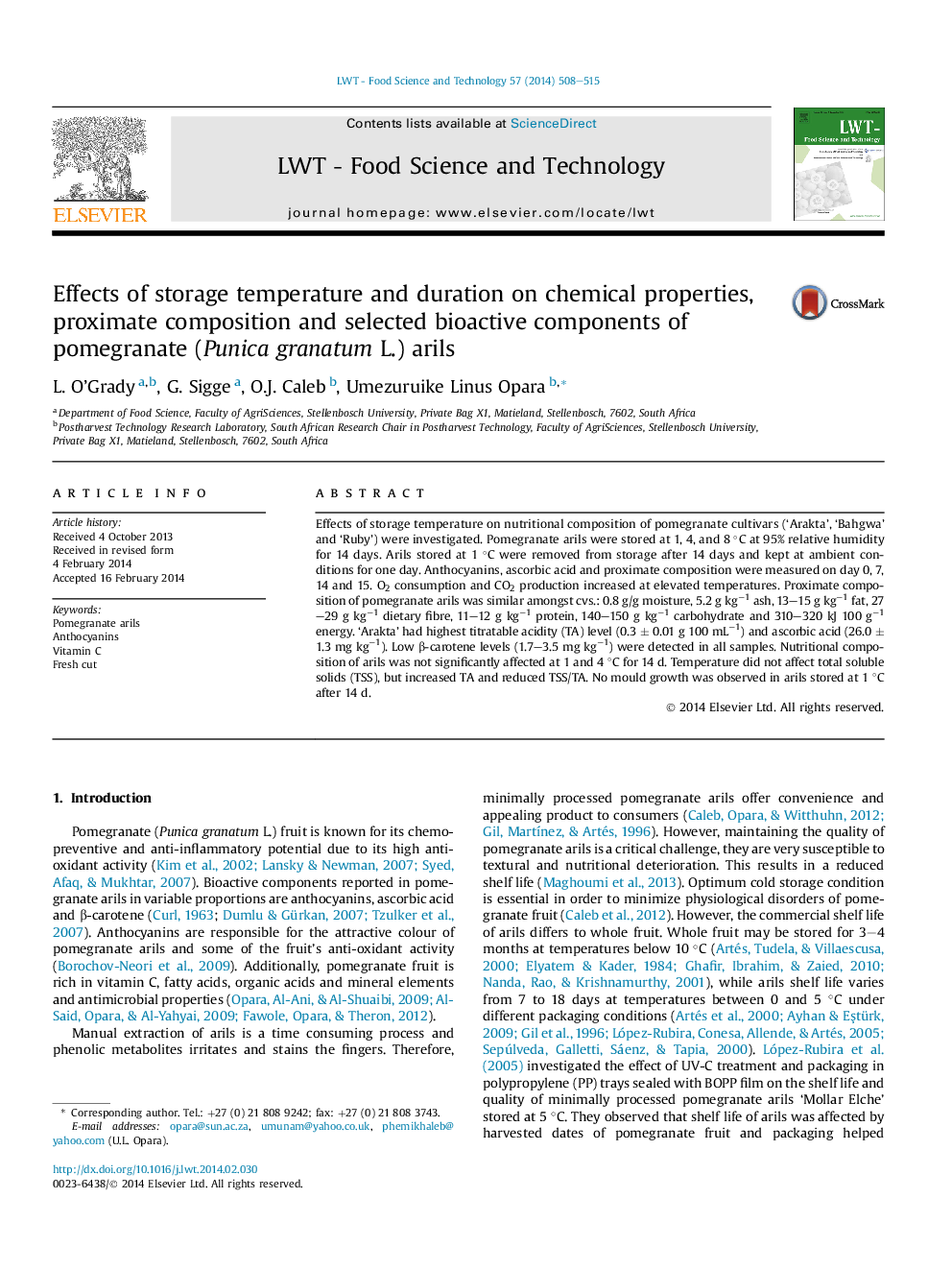| Article ID | Journal | Published Year | Pages | File Type |
|---|---|---|---|---|
| 6403369 | LWT - Food Science and Technology | 2014 | 8 Pages |
â¢Temperature had significant effect on proximate composition of pomegranate fruits.â¢Temperature had a significant effect on the bioactive components of pomegranates.â¢Storage temperature and duration had significant effect on quality attributes.â¢The quality attributes varied significantly amongst the cultivars investigated.â¢Pomegranate arils quality attributes were best kept at 1 and 4 °C compared to 8 °C.
Effects of storage temperature on nutritional composition of pomegranate cultivars ('Arakta', 'Bahgwa' and 'Ruby') were investigated. Pomegranate arils were stored at 1, 4, and 8 °C at 95% relative humidity for 14 days. Arils stored at 1 °C were removed from storage after 14 days and kept at ambient conditions for one day. Anthocyanins, ascorbic acid and proximate composition were measured on day 0, 7, 14 and 15. O2 consumption and CO2 production increased at elevated temperatures. Proximate composition of pomegranate arils was similar amongst cvs.: 0.8 g/g moisture, 5.2 g kgâ1 ash, 13-15 g kgâ1 fat, 27-29 g kgâ1 dietary fibre, 11-12 g kgâ1 protein, 140-150 g kgâ1 carbohydrate and 310-320 kJ 100 gâ1 energy. 'Arakta' had highest titratable acidity (TA) level (0.3 ± 0.01 g 100 mLâ1) and ascorbic acid (26.0 ± 1.3 mg kgâ1). Low β-carotene levels (1.7-3.5 mg kgâ1) were detected in all samples. Nutritional composition of arils was not significantly affected at 1 and 4 °C for 14 d. Temperature did not affect total soluble solids (TSS), but increased TA and reduced TSS/TA. No mould growth was observed in arils stored at 1 °C after 14 d.
